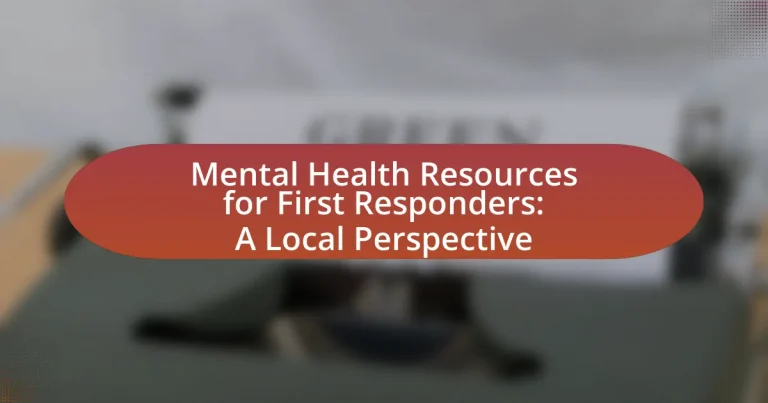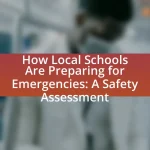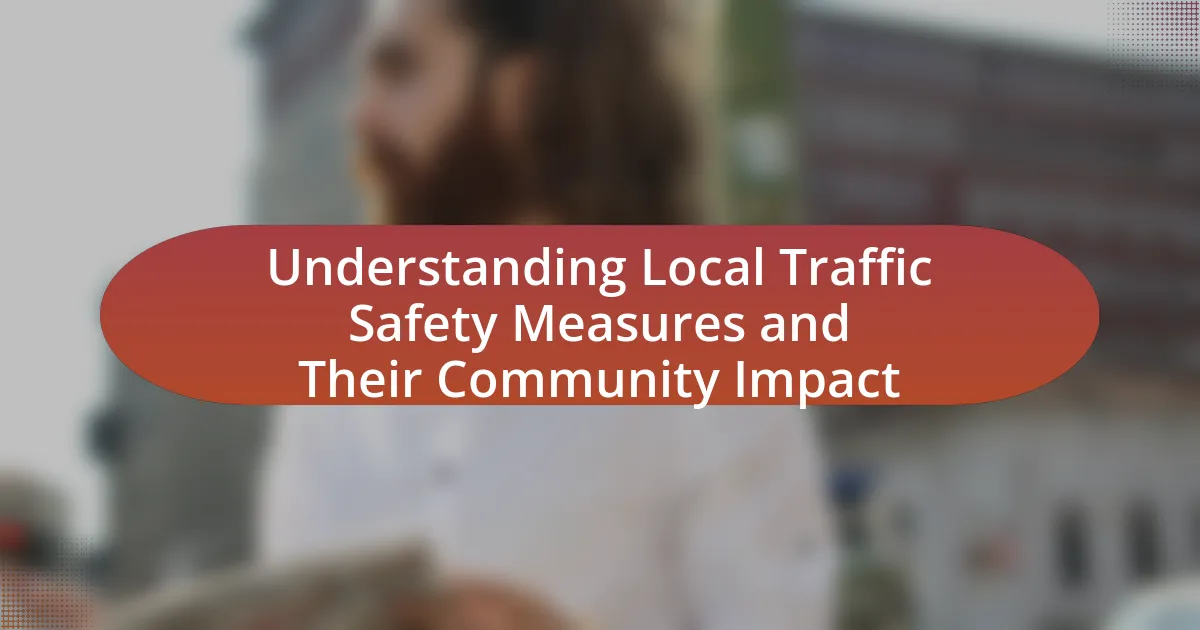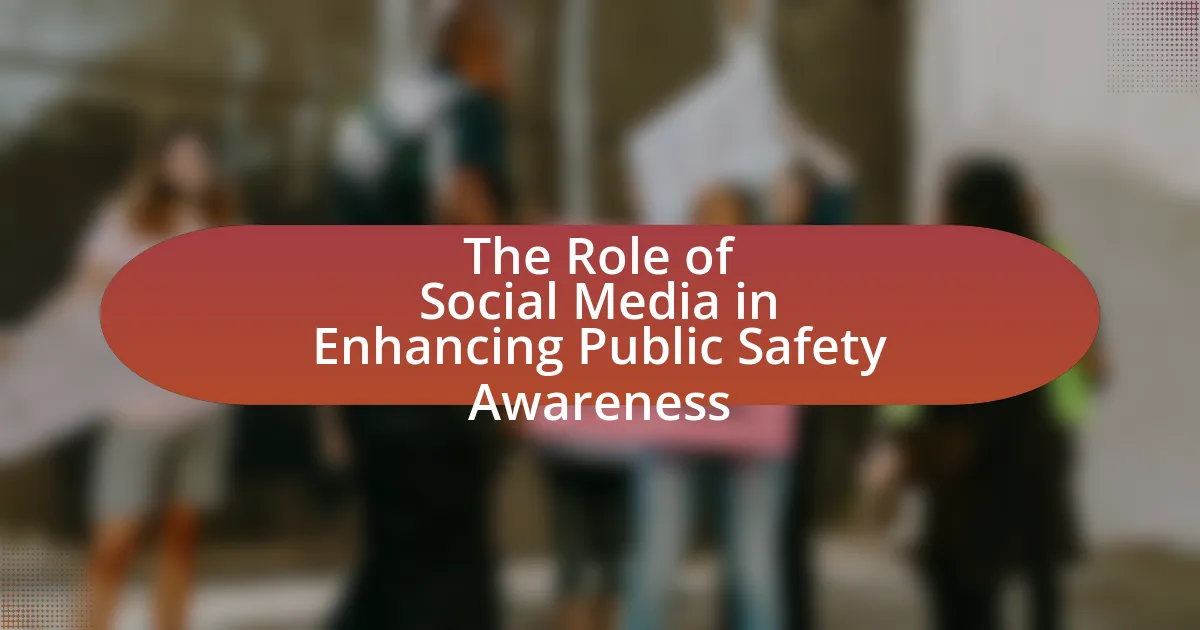Mental health resources for first responders are critical in addressing the unique psychological challenges faced by these professionals, including trauma exposure and high-stress environments. Key resources include peer support programs, counseling services, and crisis intervention hotlines, which are essential for mitigating mental health issues such as PTSD, anxiety, and depression. The article explores the importance of these resources, the specific challenges first responders encounter, and the barriers to accessing mental health support. It also highlights the role of local communities and organizations in providing these resources, as well as strategies for first responders to effectively utilize mental health services and prioritize their well-being.
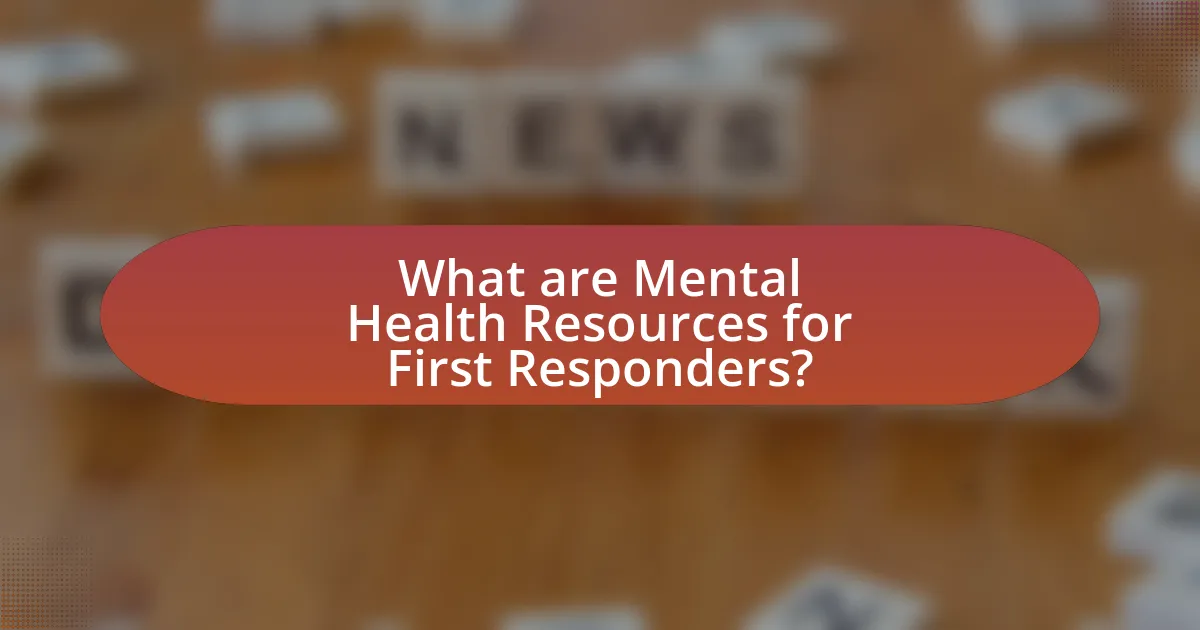
What are Mental Health Resources for First Responders?
Mental health resources for first responders include peer support programs, counseling services, and crisis intervention hotlines. These resources are designed to address the unique stressors faced by first responders, such as trauma exposure and high-stress environments. For example, the International Association of Fire Fighters offers a peer support program that connects first responders with trained peers who understand their experiences. Additionally, many local fire and police departments provide access to mental health professionals who specialize in trauma-informed care. Research indicates that first responders are at a higher risk for mental health issues, making these resources essential for their well-being.
Why are mental health resources essential for first responders?
Mental health resources are essential for first responders because they help mitigate the psychological impact of high-stress situations encountered in their line of work. First responders frequently face traumatic events, which can lead to conditions such as PTSD, anxiety, and depression. Research indicates that approximately 30% of first responders experience mental health issues, significantly higher than the general population. Access to mental health resources enables these professionals to receive timely support, fostering resilience and improving overall job performance. Furthermore, studies show that organizations providing mental health support see reduced absenteeism and improved team dynamics, underscoring the critical need for these resources in maintaining the well-being of first responders.
What unique challenges do first responders face that impact their mental health?
First responders face unique challenges such as exposure to traumatic events, high-stress environments, and irregular work hours, all of which significantly impact their mental health. The constant exposure to life-threatening situations and the need to make quick decisions can lead to conditions like PTSD, anxiety, and depression. Research indicates that approximately 30% of first responders experience PTSD, which is notably higher than the general population’s rate of about 8%. Additionally, the stigma surrounding mental health in emergency services often prevents individuals from seeking help, exacerbating their mental health issues.
How can mental health resources mitigate these challenges?
Mental health resources can mitigate challenges faced by first responders by providing essential support systems that address stress, trauma, and burnout. Access to counseling services, peer support programs, and mental health training equips first responders with coping strategies and emotional resilience. Research indicates that organizations implementing mental health resources see a reduction in symptoms of PTSD and anxiety among personnel, enhancing overall job performance and well-being. For instance, a study published in the Journal of Occupational Health Psychology found that first responders who participated in mental health programs reported a 30% decrease in stress-related symptoms, demonstrating the effectiveness of these resources in improving mental health outcomes.
What types of mental health resources are available for first responders?
First responders have access to various mental health resources, including peer support programs, counseling services, and crisis intervention teams. Peer support programs allow first responders to connect with colleagues who understand their experiences, fostering a supportive environment. Counseling services, often provided through Employee Assistance Programs (EAPs), offer confidential therapy sessions to address mental health concerns. Crisis intervention teams, which may include mental health professionals, provide immediate support during critical incidents. These resources are essential, as studies indicate that first responders experience higher rates of PTSD and depression compared to the general population, highlighting the need for targeted mental health support.
What role do peer support programs play in mental health resources?
Peer support programs serve a critical role in mental health resources by providing individuals with shared experiences and emotional support, which can enhance coping strategies and reduce feelings of isolation. These programs facilitate connections among peers who understand the unique challenges faced by individuals, particularly in high-stress professions like first responders. Research indicates that peer support can lead to improved mental health outcomes, as evidenced by a study published in the Journal of Occupational Health Psychology, which found that peer support significantly reduced symptoms of anxiety and depression among first responders. This demonstrates the effectiveness of peer support programs in fostering resilience and promoting mental well-being within this community.
How do counseling services specifically cater to first responders?
Counseling services specifically cater to first responders by providing tailored mental health support that addresses the unique stressors and trauma associated with their roles. These services often include crisis intervention, peer support programs, and trauma-informed care, which recognize the high levels of exposure to critical incidents that first responders face. For instance, studies indicate that first responders experience higher rates of PTSD, anxiety, and depression compared to the general population, necessitating specialized approaches in counseling. Additionally, many counseling services offer flexible scheduling and confidential environments to accommodate the unpredictable work hours and stigma often associated with seeking help in this profession.
How can local communities support mental health resources for first responders?
Local communities can support mental health resources for first responders by establishing dedicated programs that provide access to counseling, peer support groups, and stress management workshops. These initiatives can be funded through local government budgets or community fundraising efforts, ensuring that first responders have the necessary mental health support. Research indicates that first responders experience higher rates of PTSD and depression, making accessible mental health resources crucial for their well-being. For example, a study published in the Journal of Occupational Health Psychology found that peer support programs significantly reduce symptoms of anxiety and depression among first responders, highlighting the effectiveness of community-driven mental health initiatives.
What partnerships can be formed between local organizations and first responders?
Partnerships between local organizations and first responders can include collaborative mental health programs, training initiatives, and resource-sharing agreements. For instance, local mental health clinics can work with first responders to provide specialized training on recognizing and addressing mental health issues in emergency situations. Additionally, community organizations can offer peer support programs that connect first responders with mental health professionals, enhancing their access to necessary resources. Evidence shows that such collaborations improve mental health outcomes; a study by the National Institute of Mental Health indicates that integrated support systems significantly reduce stress and burnout among first responders.
How can awareness campaigns improve access to mental health resources?
Awareness campaigns can improve access to mental health resources by increasing public knowledge and reducing stigma associated with mental health issues. These campaigns educate individuals about available resources, such as counseling services and support groups, which can lead to higher utilization rates. For instance, a study published in the Journal of Mental Health found that targeted awareness initiatives resulted in a 30% increase in individuals seeking mental health services in communities where campaigns were implemented. By fostering an environment where mental health is openly discussed, awareness campaigns encourage first responders and the general public to seek help without fear of judgment, ultimately enhancing access to essential mental health resources.
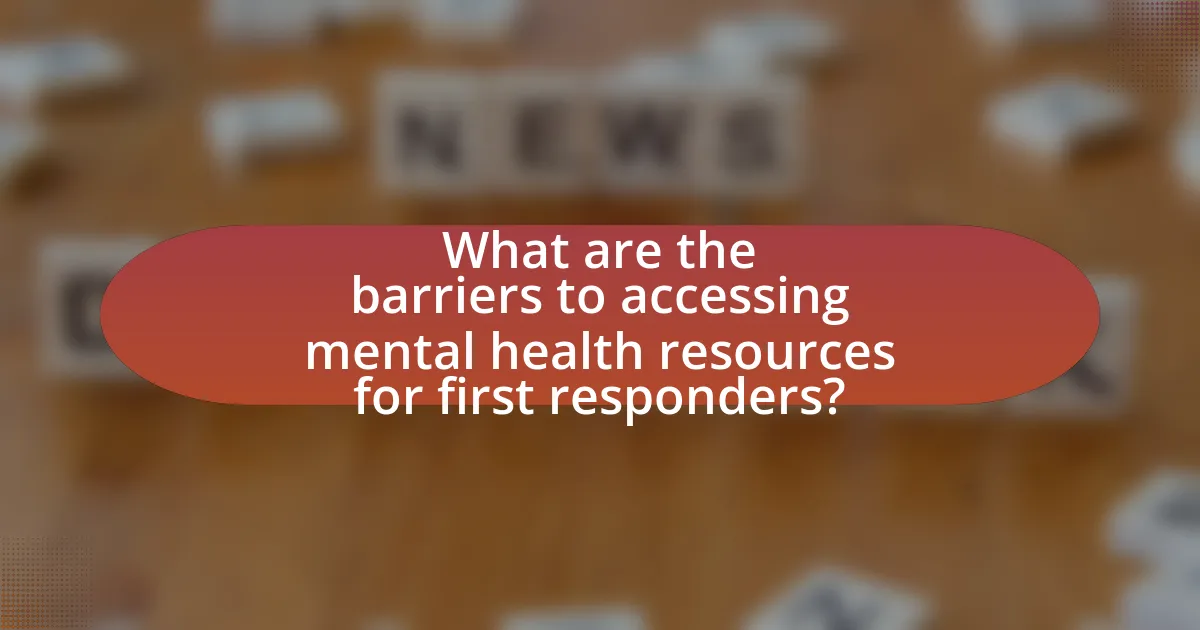
What are the barriers to accessing mental health resources for first responders?
First responders face several barriers to accessing mental health resources, including stigma, lack of time, and insufficient availability of services. Stigma surrounding mental health issues often leads to fear of judgment or negative repercussions on their careers, discouraging them from seeking help. Additionally, the demanding nature of their jobs leaves little time for self-care or mental health appointments, further complicating access. Furthermore, many regions lack adequate mental health services tailored specifically for first responders, resulting in limited options for support. These barriers collectively hinder first responders from obtaining the necessary mental health resources to address their needs effectively.
What stigma exists around mental health in first responder communities?
Stigma around mental health in first responder communities includes perceptions of weakness, fear of judgment, and concerns about career repercussions. First responders often believe that seeking help for mental health issues may be viewed as a sign of incompetence, leading to a reluctance to access necessary support. Research indicates that approximately 30% of first responders experience mental health issues, yet only a fraction seek help due to these stigmas. This reluctance is compounded by a culture that prioritizes resilience and toughness, further isolating individuals who may be struggling.
How does stigma affect the willingness to seek help?
Stigma significantly reduces the willingness to seek help among individuals, particularly in high-pressure professions like first responders. Research indicates that fear of judgment and negative perceptions associated with mental health issues lead many first responders to avoid accessing necessary support services. For instance, a study published in the Journal of Occupational Health Psychology found that 70% of first responders reported concerns about being perceived as weak if they sought mental health assistance. This stigma creates a barrier that not only discourages individuals from seeking help but also exacerbates mental health issues, leading to a cycle of silence and suffering.
What strategies can be implemented to reduce stigma?
To reduce stigma, organizations can implement education and training programs that promote understanding of mental health issues among first responders. These programs can include workshops that address misconceptions, highlight the importance of mental health, and provide information on available resources. Research indicates that educational interventions can significantly improve attitudes towards mental health, as evidenced by a study published in the Journal of Occupational Health Psychology, which found that training led to a 30% increase in positive attitudes towards seeking help among first responders. Additionally, creating supportive environments where open discussions about mental health are encouraged can further diminish stigma, as peer support has been shown to enhance coping mechanisms and reduce feelings of isolation.
What logistical challenges do first responders face in accessing mental health resources?
First responders face significant logistical challenges in accessing mental health resources, primarily due to time constraints, lack of availability, and stigma. Time constraints arise from their demanding schedules, which often limit opportunities for mental health consultations. Additionally, mental health resources may not be readily available in their local areas, leading to difficulties in finding appropriate services. Stigma surrounding mental health issues can further deter first responders from seeking help, as they may fear negative perceptions from peers or superiors. These factors collectively hinder their ability to effectively access necessary mental health support.
How do shift schedules impact the availability of mental health services?
Shift schedules significantly impact the availability of mental health services by determining when mental health professionals are available to provide care. For instance, irregular or rotating shifts can lead to gaps in service provision, as mental health providers may not be available during peak hours when first responders require support. Research indicates that first responders often experience heightened stress and trauma, necessitating timely access to mental health resources. A study published in the Journal of Occupational Health Psychology found that 60% of first responders reported difficulty accessing mental health services due to scheduling conflicts with their work hours. This evidence underscores the critical need for aligning mental health service availability with the shift patterns of first responders to ensure they receive the necessary support when they need it most.
What role does funding play in the accessibility of these resources?
Funding is crucial for the accessibility of mental health resources for first responders. Adequate financial support enables the development, implementation, and maintenance of programs tailored to the unique needs of first responders, ensuring they receive timely and effective mental health care. For instance, a study by the National Institute of Mental Health indicates that increased funding for mental health services leads to improved access and utilization rates among first responders, highlighting the direct correlation between financial investment and resource availability.
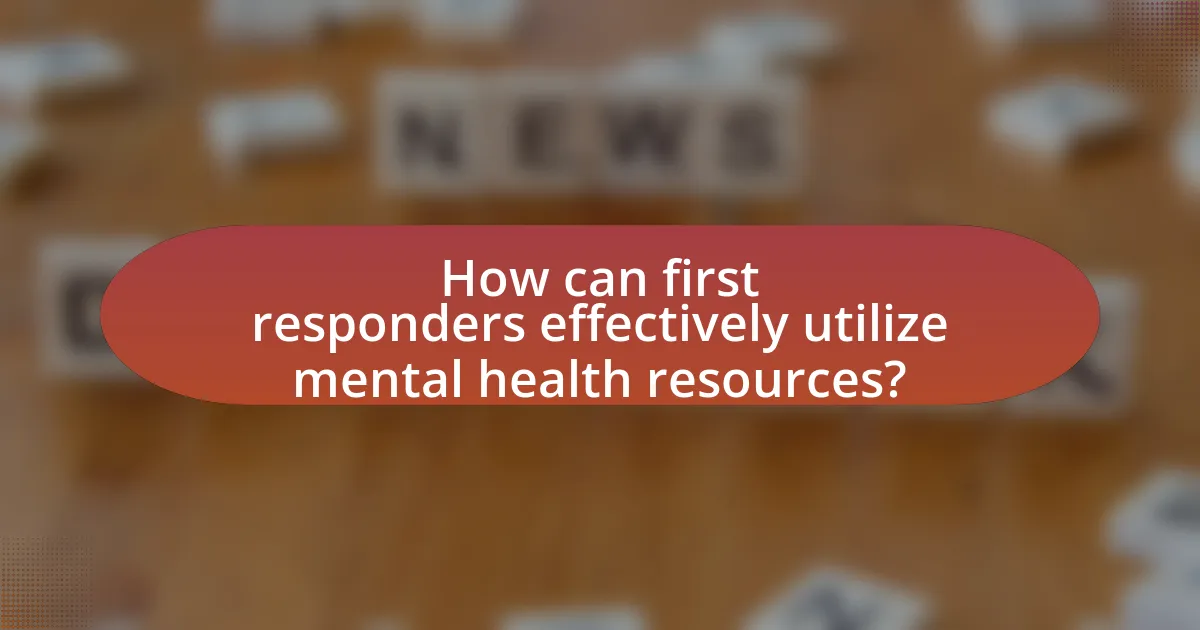
How can first responders effectively utilize mental health resources?
First responders can effectively utilize mental health resources by actively engaging in training programs that promote awareness and understanding of mental health issues. These programs, such as the Critical Incident Stress Management (CISM) model, provide structured support and coping strategies for dealing with traumatic events. Research indicates that first responders who participate in mental health training report lower levels of stress and improved emotional resilience, as evidenced by a study published in the Journal of Occupational Health Psychology, which found that 70% of participants experienced a reduction in symptoms of PTSD after engaging with mental health resources. Additionally, establishing peer support networks within their organizations can facilitate open discussions about mental health, further enhancing their ability to seek help when needed.
What steps can first responders take to prioritize their mental health?
First responders can prioritize their mental health by engaging in regular mental health check-ins and utilizing available support resources. Establishing a routine that includes self-care practices, such as exercise, mindfulness, and adequate sleep, is essential for maintaining mental well-being. Additionally, seeking professional help through counseling or peer support programs can provide necessary coping strategies and emotional support. Research indicates that first responders experience higher rates of PTSD and depression, making proactive mental health management crucial for their overall health and job performance.
How can first responders identify when they need help?
First responders can identify when they need help by recognizing signs of stress, burnout, or emotional distress. These signs may include persistent feelings of anxiety, difficulty concentrating, changes in sleep patterns, and withdrawal from social interactions. Research indicates that first responders are at a higher risk for mental health issues due to the nature of their work, which often involves exposure to traumatic events. A study published in the Journal of Emergency Medical Services highlights that 37% of first responders experience symptoms of post-traumatic stress disorder (PTSD), indicating a critical need for support. By being aware of these symptoms and acknowledging their impact, first responders can take proactive steps to seek assistance and access mental health resources.
What are some effective coping strategies that first responders can adopt?
First responders can adopt several effective coping strategies, including peer support, mindfulness practices, and professional counseling. Peer support programs allow first responders to share experiences and feelings with colleagues who understand the unique challenges of their roles, fostering a sense of community and reducing feelings of isolation. Mindfulness practices, such as meditation and deep-breathing exercises, have been shown to reduce stress and improve emotional regulation, which is crucial in high-pressure situations. Professional counseling provides a safe space for first responders to process traumatic experiences and develop coping mechanisms tailored to their individual needs. Research indicates that these strategies can significantly enhance resilience and overall mental well-being among first responders, as evidenced by studies highlighting reduced symptoms of PTSD and improved job satisfaction when such resources are utilized.
What best practices should first responders follow when seeking mental health support?
First responders should prioritize seeking mental health support by recognizing the importance of addressing their emotional well-being. They should engage in regular self-assessment to identify signs of stress or trauma, and proactively reach out to mental health professionals who specialize in trauma-informed care. Research indicates that first responders experience higher rates of PTSD and depression, making it crucial for them to utilize available resources such as peer support programs and counseling services tailored to their unique experiences. Additionally, maintaining open communication with colleagues about mental health can foster a supportive environment, reducing stigma and encouraging others to seek help.
How can first responders choose the right mental health professional?
First responders can choose the right mental health professional by assessing their specific needs and seeking professionals with experience in trauma-informed care. It is essential for first responders to prioritize mental health professionals who understand the unique challenges of their work, such as exposure to traumatic events and high-stress environments. Research indicates that professionals with specialized training in first responder mental health can provide more effective support, as they are familiar with the culture and demands of emergency services. Additionally, first responders should consider factors such as the professional’s credentials, availability, and approach to therapy, ensuring that the chosen provider aligns with their personal comfort and therapeutic goals.
What should first responders expect during their first therapy session?
First responders should expect a safe and confidential environment during their first therapy session. This setting allows them to openly discuss their experiences, feelings, and challenges without judgment. The therapist will likely begin by establishing rapport and explaining the therapeutic process, which may include assessments to understand the responder’s mental health needs. Research indicates that first responders often face unique stressors, such as exposure to trauma, which can be addressed through tailored therapeutic approaches. This initial session aims to create a foundation for ongoing support and coping strategies, ensuring that first responders feel understood and validated in their experiences.
What resources are available for ongoing mental health support?
Ongoing mental health support resources include counseling services, peer support programs, and crisis intervention hotlines specifically designed for first responders. These resources provide continuous access to mental health professionals who understand the unique challenges faced by first responders. For instance, the National Alliance on Mental Illness (NAMI) offers a helpline that connects individuals to local mental health services, while organizations like the International Association of Fire Fighters (IAFF) provide peer support networks tailored for firefighters. Additionally, many local agencies have established Employee Assistance Programs (EAPs) that offer confidential counseling and support services. These resources are crucial in addressing the mental health needs of first responders, as studies indicate that they experience higher rates of PTSD and depression compared to the general population.
How can first responders stay connected with support networks?
First responders can stay connected with support networks by actively participating in peer support programs and utilizing mental health resources available through their organizations. These programs often provide structured environments where first responders can share experiences and receive emotional support from colleagues who understand the unique challenges of their roles. Additionally, many organizations offer access to mental health professionals and workshops focused on resilience and coping strategies, which further strengthens their connection to support networks. Research indicates that peer support can significantly reduce stress and improve mental health outcomes among first responders, highlighting the importance of these connections.
What role do online resources play in ongoing mental health maintenance?
Online resources play a crucial role in ongoing mental health maintenance by providing accessible information, support, and tools for individuals to manage their mental well-being. These resources, such as websites, apps, and online therapy platforms, offer evidence-based strategies and coping mechanisms that can be utilized anytime and anywhere, which is particularly beneficial for first responders who often face unique stressors. Research indicates that online mental health interventions can significantly reduce symptoms of anxiety and depression, with studies showing a 50% improvement in mental health outcomes among users of such resources.
